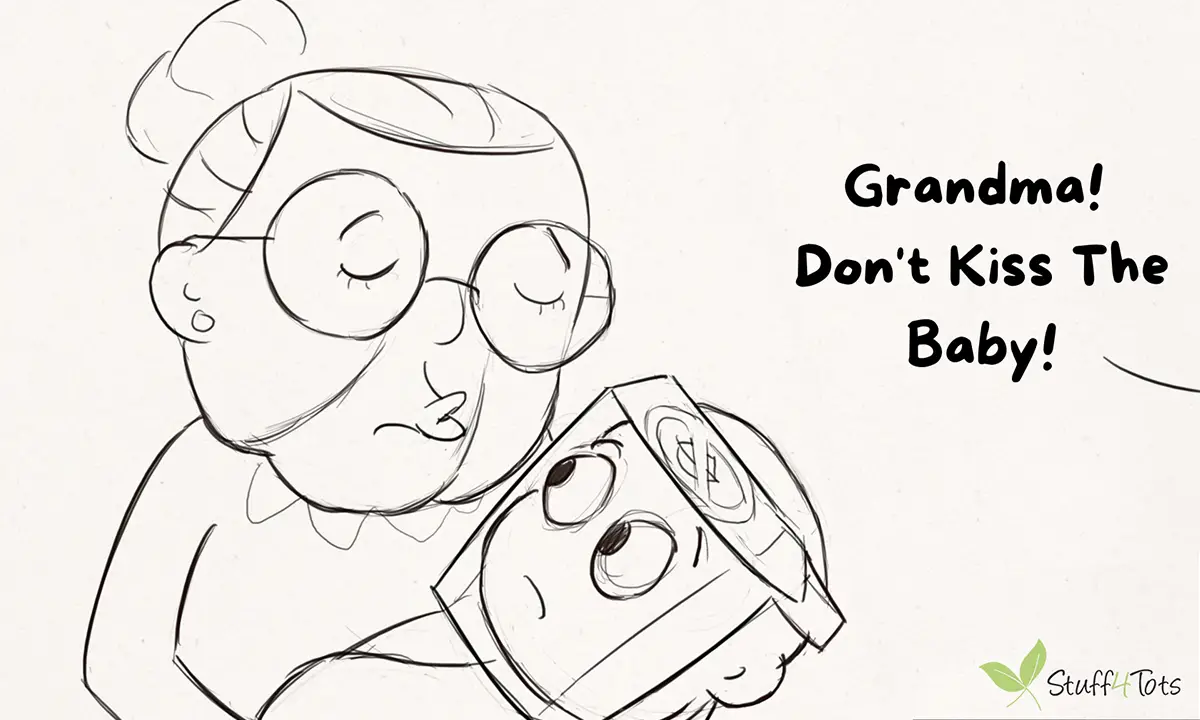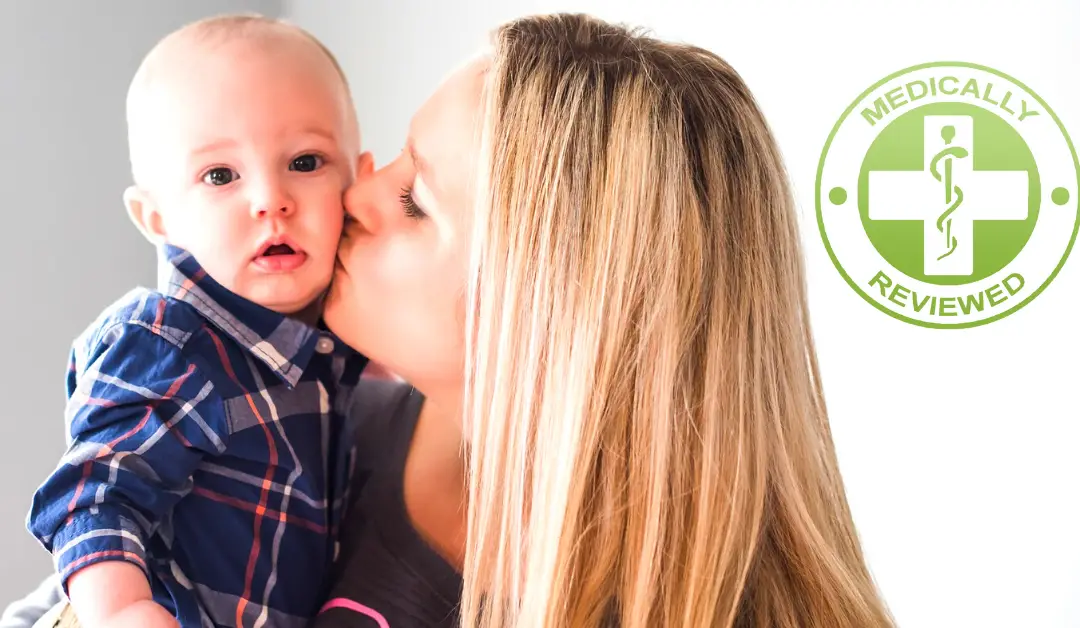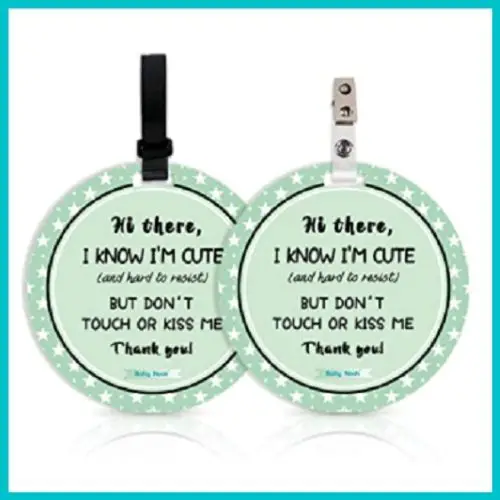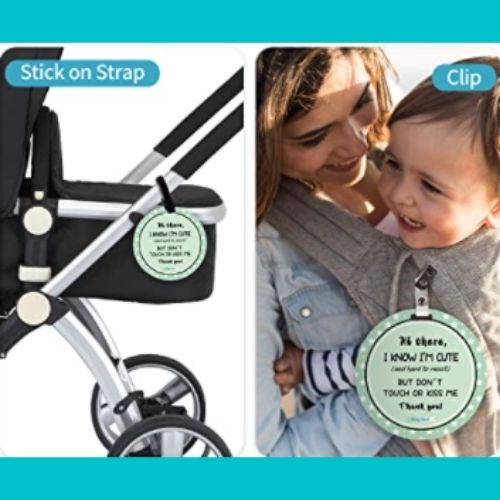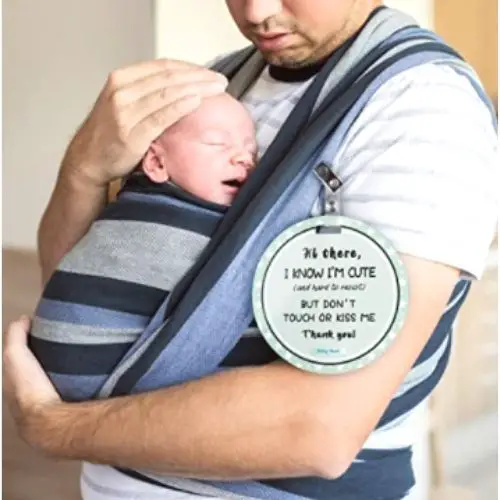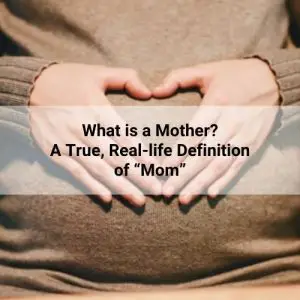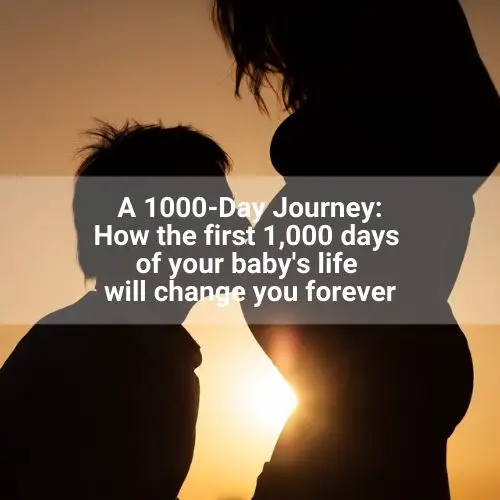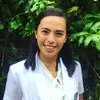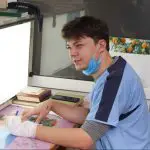I was raised in the 80s and I’ve gotta say things have changed a lot in terms of germophobia and hygiene awareness in that time.
My mom, God bless her, didn’t follow us around with bottles of disinfectant and I doubt hand sanitizer was even invented.
Sharing a bottle of soda with your buddies was a perfectly natural thing to do.
I’m a firm believer in letting kids build up their immunity to bacteria and viruses through exposure.
In fact, I believe that a house can be too clean. It is unnatural for a child to grow up without coming into contact with dirt and germs when you think about it.
So, with that in mind, I was completely shocked and heartbroken when I saw this traumatic news story on youtube about poor Mariana Sifrit.
One can only imagine how horrific that must have been for her poor parents.
The thing we forget is that a newborn is so different to adults, older kids, even toddlers. And that big difference is in their undeveloped immune system.
Babies come out of the womb pre-loaded with lots of mom’s anti-bodies. A great start in life. Breastfed children also get a top up post-natal too.
However, as great a foundation as this is, the newborn is still a vulnerable being. The immune system is not fully charged and ready for battle yet.
Infact, if you look at this vaccination calendar, you’ll see that your baby is vaccinated against hepatitis B almost directly after birth. From the moment they’re born we’re helping their immune system along. This vaccination calendar is worth spending some time looking through as it contains links to even more information on every vaccination your baby should get from birth all the way up until they’re 18 years old!
The fact that newborns immune systems need an instant top up, so to speak, got me thinking about all the times our two little darlings were kissed as babies; and how many other people’s little ones I have kissed over the years too!
I decided to look into the topic of whether or not people should kiss babies.
Here’s what I found out.
Table of Contents
What bugs could your baby catch when kissed?
Kissing your baby is a natural thing to do, especially when you just feel all the love inside that you want to somehow show your new darling.
What could possibly go wrong with such a loving act?
Unfortunately, kissing is more than just a show of affection, it may also pave the way for your baby to acquire some diseases that might be deadly.
Here are some diseases or problems that your baby might face when kissed by some relatives or friends:
1. Respiratory Syncytial Virus
RSV is a common infection in children that affects the lungs and breathing passages, causing them to have a stuffy/runny nose, sore throat, etc.
It is known to be highly contagious and may be spread through saliva droplets from kissing, coughing or sneezing.
It’s a common misbelief that babies have very small and fragile airways, but in fact they’re much bigger than an adults if you consider the overall size of their body.
The danger here is actually due to the under developed nature of a babies airways, because of this their airways are much more vulnerable to this virus and RSV can, very rarely, cause an inflammation which may be fatal to a baby.
2. Cold Sores (HSV-1, HSV-2)
It’s estimated that almost 70% of adults carry the Herpes Simplex Virus. Herpes Simplex, known scientifically by its strain (HSV-1 or HSV-2) or colloquially as Cold Sores.
Once infected the virus stays with you for life. Sometimes hiding dormant in your nervous system and sometimes erupting into ugly sores on the lips and face.
In its dormant phase it is not usually contagious. However, there are times when the virus is preparing for an eruption that it becomes contagious even without any outward visible signs.
Both my husband and I get cold sores a couple of times a year but, touch wood, neither of our children has acquired it off us – yet. Kind of surprised at that given how contagious it is. We try to be careful when we have an outbreak but it is very contagious so I would have expected them to get it by now. Fingers crossed it stays like that anyway.
For most adults and children carrying the HSV-1 or HSV-2 is more of an inconvenience than a major health risk.
For new-borns that is dramatically different though.
With their still weak and developing immune systems they are very vulnerable to disease.
If a baby catches herpes it causes tiny fluid-filled blisters in clusters that usually occur at the edge of your baby’s lips. It is highly contagious and is easily spread through skin to skin contact.
And for most that is, thankfully, the worst it gets.
However, in very severe cases it can spread up through the nervous system into the brain causing a meningitis like reaction.
One mother from England publicized the issue on Facebook – shocking the world at the time.

Please don’t have nightmares though. This is an extreme case but, maybe sharing this story (and the sad tale of Mariana Sifrit) with those relatives and friends who don’t get it, will help persuade them to be more careful.
Remember that the odds of this happening are extremely low; and those lovely anti-bodies that you lovingly passed baby in your womb will certainly help.
3. Food Allergies
There are some who say that babies can “catch” allergies from kisses. This doesn’t sound correct to me. In fact, most recent data shows that early exposure to allergens actually decreases the risk of developing food allergies.
However, if a baby already has an allergy, then it’s certainly a possibility that a kiss with someone with traces of that food in their saliva (yeuck) could trigger a reaction.
Even make-up is a risk as some cosmetics contain certain triggers that may cause an autoimmune response in your baby.
Remind your friends or guests not to kiss your baby near the lips as the food that they’ve consumed might cause an allergic reaction in your baby.
This is especially true if there is a likely genetic risk in your family. For example, my husband’s family has a history of allergies to eggs, nuts and fish. For this reason, we were extra careful around these foods until our son was old enough to be tested himself.
4. Kissing Disease (Mononucleosis)
“Kissing disease” or infectious mononucleosis is a also member of the herpes family and is known to cause respiratory problems for in young children.
Aside from acquiring it through kissing the baby on the lips, it may also be acquired through saliva, sharing utensils and drinking from the same bottle or glass, etc.
It often presents as a high fever, nausea, vomiting, enlarged lymph nodes, a sore throat and inflamation of Waldeyer’s ring (includes tonsils, adenoids, and other lymphoid tissue inside the throat)
Kissing disease is viral in origin and eventually passes within a week or two.
5. Cavities
Kisses may also transfer cavities to your child.
Ok, maybe that’s a bit harsh, but a bacterium called “Streptococcus mutans”, which is present in saliva, can be passed on to them when you kiss them, especially when you don’t practice proper oral hygiene.
Proper oral hygiene and not sharing food with your baby can prevent this from happening.
6. Diarrhea
The bacteria in their gut is still developing hence they are prone to having stomachache, diarrhea, nausea and vomiting.
Stomach viruses are highly contagious and can pose a danger to your baby and may lead to dehydration.
7. Whooping Cough
Whooping cough is another highly contagious infection.
It is famous (and so named) for the “whooping” sounds a victim makes when coughing. It has the same symptoms as flu and is often mistaken for it in the early infection period.
Before the invention of a vaccine, it was responsible for millions of deaths worldwide.
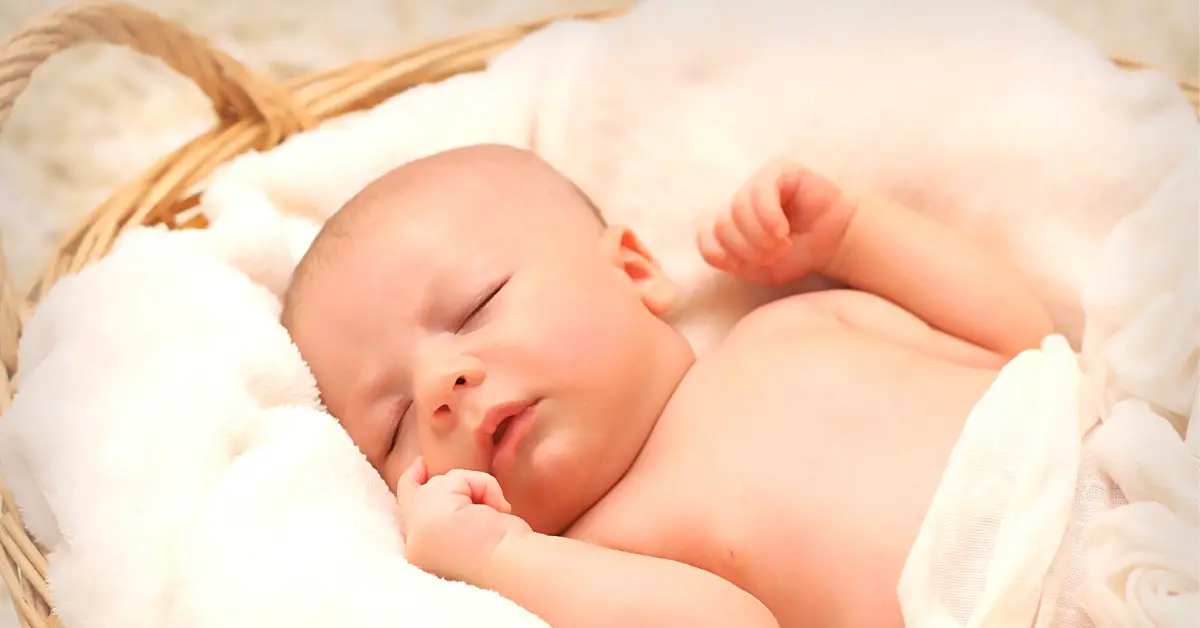
But she’s so kissable! How can I tell grandma to stop kissing her?
In the days when the older generation looks down on ‘snowflakes’ and ‘tiger moms’ we don’t want to be perceived as being mom-zillas – over-protective, spoilers of grandchildren.
And let’s be honest we all love our newborn being the center of attention; receiving warm hugs and affections from our extended families.
It’s good for their development to receive physical contact after all.
However, as moms and dads we sometimes need to be strong and take a stand for our charges who are unable to speak up for themselves.
One mom had the idea of sending out a group text, email or Whatsapp message to family and friends after baby was born. Something along the lines of “with it being cold/cold sore season, we ask that no one kisses DD (darling daughter) as no one needs a poorly tiny baby”.
We thought that was a good idea as it sets the ground rules before a visit happens and it gives you something to refer to face-to-face – bit less awkward.
Others suggest using that traditional negotiating strategy ‘third party offset’. That is you say “you can’t do that because X said I couldn’t let you”. X in this case could be a midwife or pediatrician.
Again, that reduces the pressure from you personally.
If all else fails sitting down and explaining that, while the risk is extremely low, the consequences could be quite severe. From an illness all the way up to the unthinkable.
If a compromise is necessary perhaps suggest that kissing is ok but please avoid the mouth and nose areas. A little peck on the cheek or the top of the head will reduce the risk significantly.
And don’t think you’re a weird parent for thinking this. There are a whole range of products to help out so you’re definitely not alone. For example, check out these stroller/car seat signs on Amazon which politely ask people to not kiss the baby.
Again, this allows you to raise the topic without verbally having to confront anybody and makes the situation a little less uncomfortable.
How can I prevent these nasty things from happening?
In the past few years, a special procedure has actually been developed to help boost the babies immune system and it’s as simple as a hug!
By attaching the baby to the mother after birth for a few minutes. It helps the microbiota (normal microbes, which cover the surface of the mothers body) to move into the baby’s body. If the mother can’t do this procedure then the doctors will get dad to step in place of mom.
It is natural for our body to be a habitat for bacteria and viruses.
Us, adults, have a strong immune system that can protect us from these agents.
But what about our children? They are still so small and need our support in order for them to grow well and healthy.
Here are some precautions that you can take while kissing or cuddling your baby:
• Maintain your personal and oral hygiene regularly as this reduces the chance of you transferring your virus or bacteria to your baby. Shoot – this isn’t a bad thing to be doing anyways! ![]()
• Maintain your baby’s oral hygiene too. Even if they don’t have any teeth they still tend to salivate a lot, and this happens to be a good habitat for bacteria and viruses.
• Washing your hands before and after you handle your baby, change diapers, and feed them lessens the risk of you infecting your baby.
• Bathe your baby regularly especially during summer as the moisture in their skin is a good place to multiply bacteria.
• Teach your friends and family the importance of these precautions and how doing this keeps your baby safe from pesky kissing diseases.
• Make sure that you always clean the surfaces in your home especially those that your baby has a frequent contact with like the floors, mats and toys.
• Tell those who are already showing signs of flu or infection (especially cold sores) to not kiss nor have a contact with your baby. If you are the one who is sick and you can’t ask help from anyone else, make sure that you wear a mask and wash your hands before and after handling your baby.
Asking family, friends and, even on occasion, strangers not to kiss your new born can be a little embarrassing and uncomfortable.
Remember though you’re entitled, as a parent, obligated even, to stand up for your little one until he/she is capable of doing it for themselves. It’s not easy but nobody ever said being a parent was going to be a cake walk. 😊
